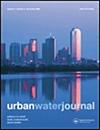高适应性城市环境中灰水处理系统的设计:人体工程学和人为因素观察分析
IF 1.6
3区 环境科学与生态学
Q3 WATER RESOURCES
引用次数: 0
摘要
中低收入国家无规划的高密度住区往往缺乏有效的废水管理系统。基于自然的解决方案,如人工湿地,是处理灰水的一种选择,前提是它们被社区使用并对社区有用。我们在南非约翰内斯堡的一个非正式定居点探索了两个试点人工湿地迭代设计的有效性。采用人体工程学和人为因素(E/HF)设计方法,本研究评估了与人工湿地相互作用相关的可用性和姿势风险,以激励(和评估)设计变更,以增加使用并降低肌肉骨骼疼痛的风险。升高的工作区域减少了肌肉骨骼的风险,更大的工作区域允许更多的用户同时使用。升高的工作区域提供了其他好处,例如雨水和污水保护。E/HF作为更广泛的跨学科团队的一部分的价值通过将设计嵌入社区活动中得到证明。本文章由计算机程序翻译,如有差异,请以英文原文为准。
Designing a greywater treatment system in a highly adaptive urban environment: an ergonomics and human factors observational analysis
ABSTRACT Unplanned, high-density settlements in low-middle income countries often lack functional wastewater management systems. Nature-based solutions, such as constructed wetlands, are an option for the treatment of greywater, provided they are used by and useful to the community. We explored the effectiveness of iterative design for two pilot constructed wetlands in an informal settlement in Johannesburg, South Africa. Using ergonomics and human factors (E/HF) design approaches, this study evaluated the usability and postural risks associated with interactions with the constructed wetlands to motivate (and evaluate) design changes to increase use and reduce the risk of musculoskeletal pain. An elevated work area reduced musculoskeletal risks and a larger work area allowed more users at one time. The raised work areas provided other benefits such as stormwater and sewerage protection. The value of E/HF as part of a broader transdisciplinary team was demonstrated by embedding the design in the activities of the community.
求助全文
通过发布文献求助,成功后即可免费获取论文全文。
去求助
来源期刊

Urban Water Journal
WATER RESOURCES-
CiteScore
4.40
自引率
11.10%
发文量
101
审稿时长
3 months
期刊介绍:
Urban Water Journal provides a forum for the research and professional communities dealing with water systems in the urban environment, directly contributing to the furtherance of sustainable development. Particular emphasis is placed on the analysis of interrelationships and interactions between the individual water systems, urban water bodies and the wider environment. The Journal encourages the adoption of an integrated approach, and system''s thinking to solve the numerous problems associated with sustainable urban water management.
Urban Water Journal focuses on the water-related infrastructure in the city: namely potable water supply, treatment and distribution; wastewater collection, treatment and management, and environmental return; storm drainage and urban flood management. Specific topics of interest include:
network design, optimisation, management, operation and rehabilitation;
novel treatment processes for water and wastewater, resource recovery, treatment plant design and optimisation as well as treatment plants as part of the integrated urban water system;
demand management and water efficiency, water recycling and source control;
stormwater management, urban flood risk quantification and management;
monitoring, utilisation and management of urban water bodies including groundwater;
water-sensitive planning and design (including analysis of interactions of the urban water cycle with city planning and green infrastructure);
resilience of the urban water system, long term scenarios to manage uncertainty, system stress testing;
data needs, smart metering and sensors, advanced data analytics for knowledge discovery, quantification and management of uncertainty, smart technologies for urban water systems;
decision-support and informatic tools;...
 求助内容:
求助内容: 应助结果提醒方式:
应助结果提醒方式:


